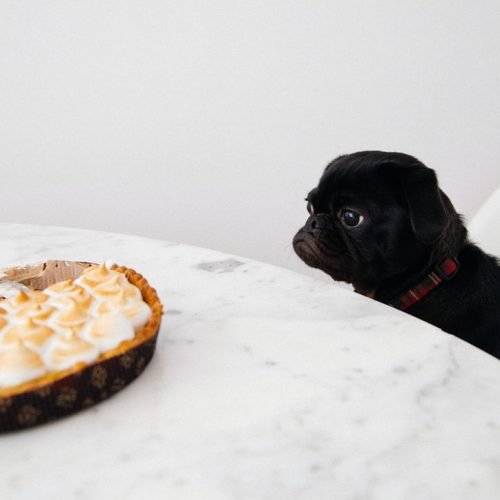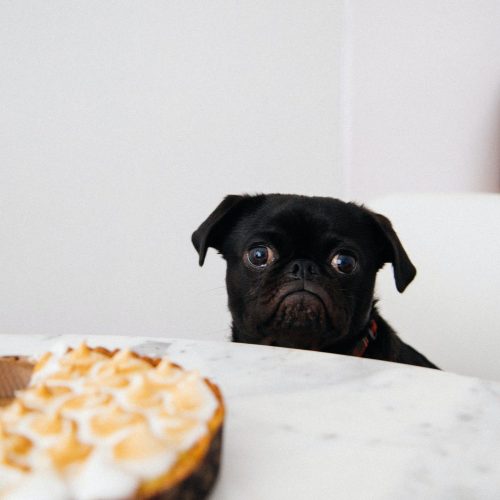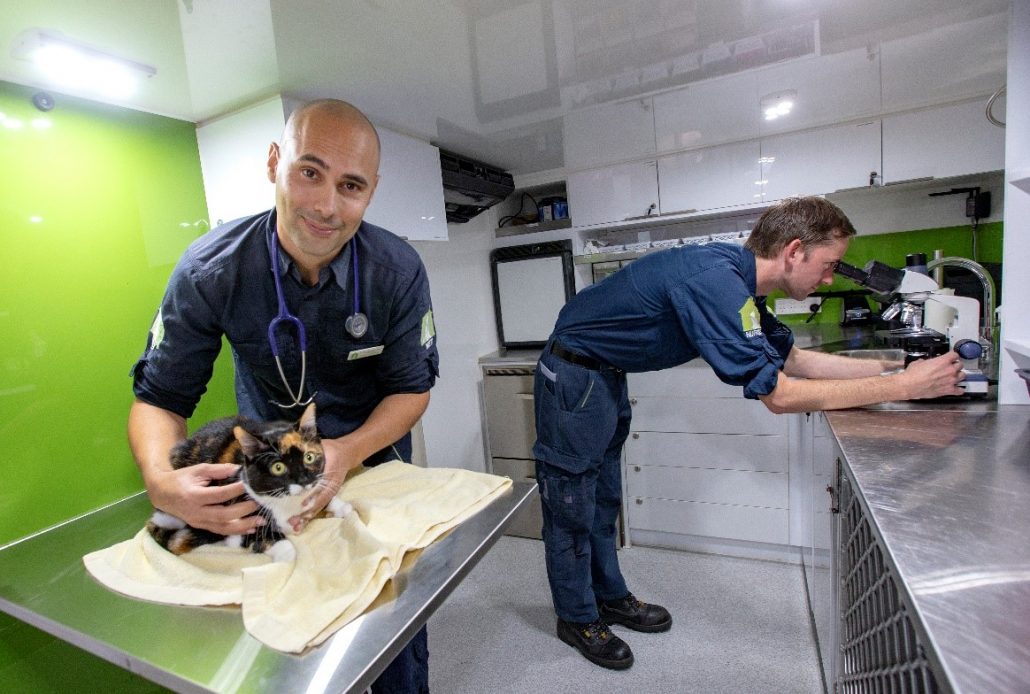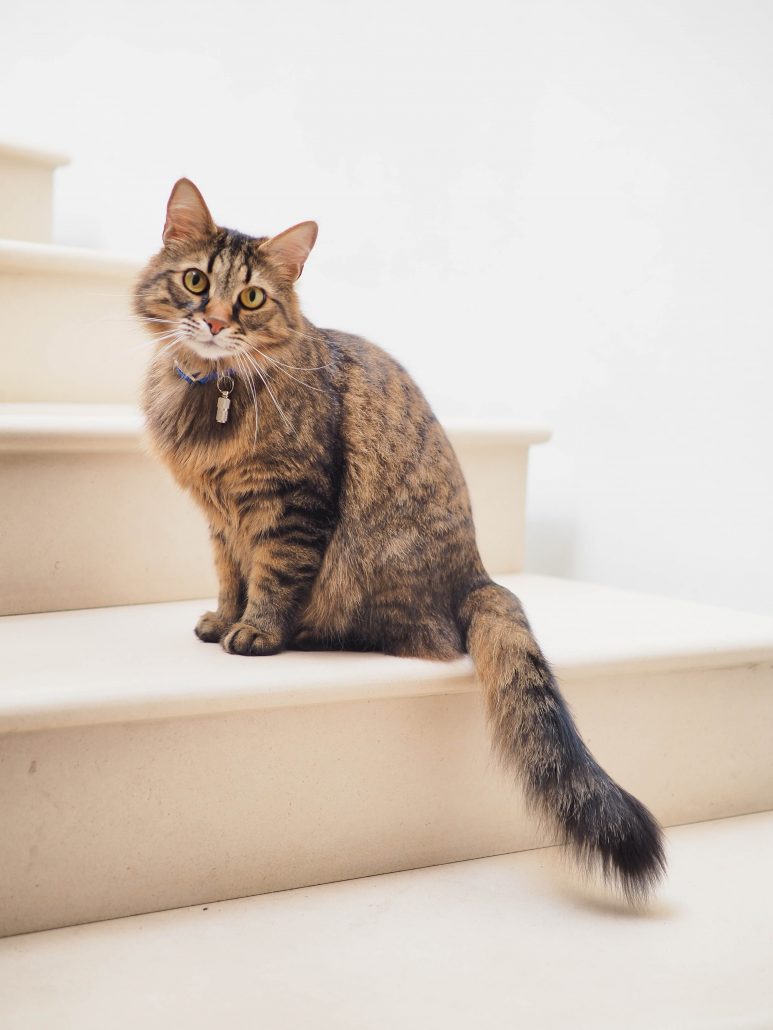Pets and Chocolate
What are the Dangers of Chocolates in Pets?
From Valentines day and Easter to a sneaky block before bed, It’s no doubt that we all have a love for chocolate! However, you won’t be doing your pet any favours by offering them this sweet treat. Unfortunately, chocolate in all forms is poisonous to our furry friends and should be kept away!
Both cats and dogs of all sizes are at risk of chocolate poisoning. We tend to see more reported cases of affected dogs, as there are more likely to eat just about anything! Cats are often less inclined to eat chocolate. This makes chocolate toxicity cases rarer, but it still happens!
Smaller pets face a much higher risk of feeling the effects of chocolate toxicity as it only takes a small amount of cocoa to negatively affect them. While it takes about 300g of milk chocolate to cause vomiting and diarrhea in larger dog breeds, it only takes 85 grams to do the same in small dog breeds!

Pets and Chocolate
Why Is Chocolate Poisonous?
Most chocolate contains caffeine and cocoa as well as a naturally occurring stimulant called theobromine. The presence of theobromine and caffeine is what makes chocolate so dangerous for our pets!
While humans have the ability to break theobromine down, this is more difficult to do so in dogs and cats. As a result, pets are more likely to develop chocolate poisoning. Even small amounts can cause adverse reactions and sometimes prove to be fatal.
Baking chocolates and dark chocolates are the most dangerous type as is contains the most amount of theobromine. However, all types of chocolate products, such as white chocolate and cocoa powder, is poisonous in the right quantities. Thus, it is always important to monitor your pets and the foods they eat.
Symptoms of Chocolate Poisoning
The onset of theobromine poisoning is usually characterised by severe hyperactivity.
Pet owners needn’t worry if their furry friend has snuck in the last square of your milk chocolate bar as this will not be a large enough dose to hurt them. However, it is better to err on the side of caution if you suspect your pet has eaten any amount of dark chocolate as even a small amount contains a higher level of theobromine.
If you suspect your pet has eaten chocolate, they may display the following symptoms:
- Vomiting
- Diarrhoea
- Rapid Breathing
- Increased Heart Rate
- Low Blood Pressure
- Seizures
- Cardiac Arrest
- Weakness
- Coma


Pets and Chocolate
What To Do If Your Pet Has Eaten Chocolate
We know that accidents can and will happen! If you suspect or know that your pet has ingested large amounts of chocolate. The usual treatment for ingesting chocolate and theobromine poisoning is to induce vomiting within two hours of ingestion.
However as it is toxic to dogs and cats, if you are worried that your pet may have eaten a large quantity do not hesitate to call your vet or the pet poison helpline. Let them know how much was eaten, what type and what time your pet ate the chocolate. Keep any packaging to hand – as it contains useful information.
In some cases, you may be advised to take your pet in for assessment and possible treatment. Time is of the essence to ensure no lasting damage is done.
There is no conclusive cure for chocolate poisoning and care is usually based on damage limitation. Some vets may administer activated charcoal to treat a chocolate poisoning problem. Activated charcoal can help by preventing the theobromine from getting absorbed by your pet’s body.
Pets and Chocolate
Reduce The Risk
Chocolate can prove to be an expensive treat! To help reduce the chance of your pet eating chocolate, be sure to keep chocolate products out of reach. Although cats are more selective about what they eat and most likely won’t accidentally eat chocolate, dogs do like the smell and taste of chocolate, thus you need to be much more careful about storing your sweet treats.
Additional precautions to take include:
- Never feed chocolate to your pets and make sure any children know not to do so.
- Keep all chocolate, and chocolate products out of reach in high or locked cupboards.
- Be vigilant during Easter, Christmas and other events when there is likely to be lots of chocolate in the house.
- Avoid using gardening mulches that contain cocoa shell.


Pets and Chocolate
If you are concerned that your pet has eaten chocolate or is experiencing the worrying symptoms of chocolate poisoning, please give us a call on 1300 838 868.
Our vets can come out for a House Call visit or we have clinics in Sunnybank and Kenmore.
We believe passionately in providing exceptional veterinary care and building lasting relationships with our patients and their owners.
We consult from 7 am to midnight 7 days a week so that we can always be there for you and your pet, no matter what level of care they need.
BOOK An Appointment Today!

